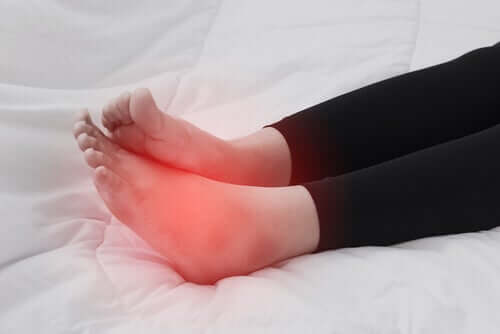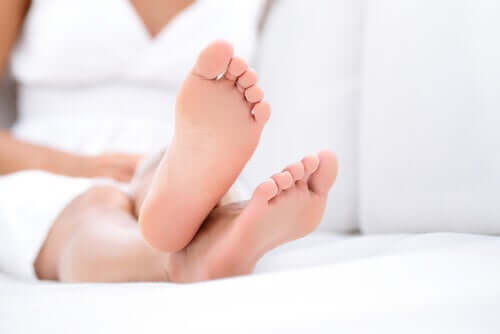During confinement, some people such as diabetics, children or the elderly must take special care with their feet.
Currently, confinement due to the coronavirus pandemic has been declared in a large number of countries.This consists of staying at home and going out only for what is necessary, such as shopping or working if necessary.
This situation is very delicate because our physical activity has been greatly reduced. In addition, all the habits of our routine change, like dressing, and even our diet. Therefore, it is normal that our whole body suffers in one way or another, including the feet.
Our feet are used to a type of footwear and a minimum of hours of activity . In the same way, they remain vulnerable to any wound or injury, such as the appearance of an ingrown nail. In this article we explain everything you should know about confinement and feet.
How does confinement affect our feet?
Table of Contents
Confinement forces us to stay at home and restrict all outside activities. This makes our mobility very reduced. Although it is true that you can exercise at home, some people do not even have enough space or are not motivated to do so.
In addition, during our normal routine, almost all people walk, whether to go to the workplace, shopping or just a walk. The fact that all this has been restricted inevitably leads to more sedentary lifestyle or spending a lot of time lying down and sitting down .
Confinement has also altered our dressing habits. Being at home, we rarely use the shoes that we would wear on any day of our routine . Although it seems silly, our feet can become habituated to them.
Podiatrists claim that it is never appropriate to abuse the same shoe. The same goes for going barefoot . Going without shoes is totally natural, but it is easier for you to hit yourself or get cold.

What injuries can appear?
While it is true that most foot injuries that may occur during confinement are not serious, there are some situations that require special attention. For example, in the case of the elderly or diabetics it would be necessary to be more cautious.
Diabetic foot is a pathology that usually appears in those with long-standing diabetes or poor glucose control. It is that sensitivity is lost in this part of the body, so any wound can be seriously complicated.
On the other hand, there are other injuries that need to be considered. Any blow to the feet during confinement can lead to a fracture or muscle problem. We must also highlight ingrown toenails , which can cause a lot of pain and even an infection of the foot.
What care should we take during confinement?
In order to avoid any complications in our feet during confinement, there are some very simple measures that we can put into practice. First of all, the ideal is to carry out a daily exercise routine .
There are many easy and fun ways to exercise at home. For example, videos of routines created by trainers or exercise applications. You can even make your own routine with what best suits your physical condition.
In addition, it is recommended to change shoes at least a couple of times a day. Choose comfortable shoes, such as sneakers or the one you usually wear in your day to day. This will prevent your feet from becoming uninhabited.
Finally, it is very important to follow proper hygiene and try to use socks and shoes that allow good breathability. Our feet are a very important part of our body and we should not forget them during confinement.
